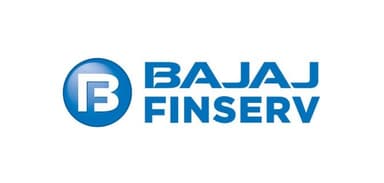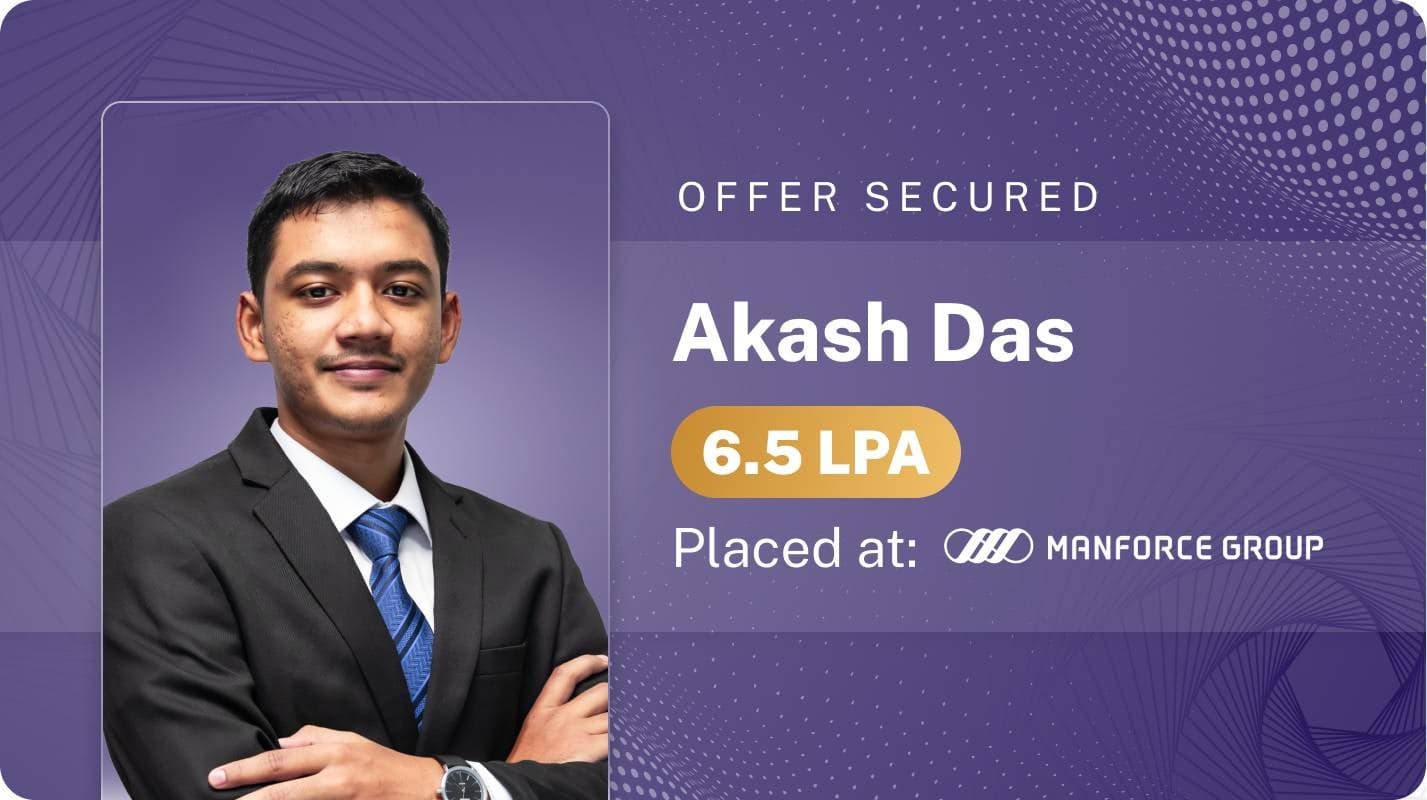MBA Course Overview
A comprehensive MBA program combining academic learning, industry exposure, and hands-on projects to build future-ready leaders.
Our Promise
Kickstart your career with diverse job opportunities

-
150+ Varied job profiles
-
1020+ Unique job opportunities
-
305+ Students with 2+ job offers
6+ Career-Focused MBA Specialisations
MBA Eligibility Criteria
- Graduate in any discipline
- 50% marks in aggregate
- A valid score in national/state admission exam, if required
Mba Fee Details
MBA fees vary based on the selected college, university partner, and specialisation. The total program fee depends on the campus, course structure, and academic partner. Candidates are advised to use the fee calculator to view accurate, college-wise and course-wise fee information.
0 Cost EMI available
Up to 100% scholarships available
Get 200+ assured opportunities with Placement Opportunity Program
Calculate fees
*Terms & conditions apply
Choose from 15+ top colleges & make your application process easier!
Key Offerings
70+ sessions by industry experts and ex-IIM faculty
Capstone projects every semester
Professional portfolio to increase chances of getting hired
10 in-demand advanced certifications to choose from
Seed funding support for budding entrepreneurs
120+ hours of Mock GD/PI Training
International/India trips for experiential learning
Get 200+ assured placement opportunity or get 1st year tuition fee back
Get placed where you belong
























The Sunstone Philosophy
helps you learn from the best and provide a hands-on experience so your education is not just limited to theory
Learn from Recruiters
Learn from MDs, CEOs & Founders of leading companies with 10+ years of hiring experience
10+Industry Experts 70+Expert Sessions
Practice in the Real World
Practice what you learn and develop in-demand skills with real-world opportunities

8+ months of immersive internships
Practice the skills you acquire in the classroom with industry internships

Capstone projects
Application-based industry-relevant projects to make you job-ready from Day 1

Industry visits
Experience how theoretical concepts learnt in class are put into action
Create your own Portfolio
Increase your chances of getting hired by showcasing your verified skills and experience with a professional portfolio
All your professional work in one place, with easy sharing access
Easy portfolio-building with lifetime free service

MBA Student portfolio
Holistic Learning
Transform your career journey with real-world learning and experiences beyond classroom
Industry Recognised Credentials
- Credential 1
- Credential 2
Degree
- Master the principles of business administration
- Earn a UGC-recognised/AICTE-approved degree
- Equip yourself with industry-relevant skills

Explore
Life at Sunstone
Cultivate the leader in you with our unique offerings.
Discover our communityStudent Testimonials
Our Success Stories
MBA Diaries
Know more about MBA programs, entrance exams, and admissions with our blogs
Top 10 Best MBA Colleges in India with Low Fees
By Bhavya Thakkar
25 Jul,2022MBA Eligibility 2025 - Admission Criteria, Minimum Qualification, Marks, MBA Colleges
By
04 Sep,2025MBA in HR: Syllabus, Subjects and Books
By Admin
16 Sep,2025MBA in Business Analytics: Syllabus, Subjects and Books
By Admin
01 Sep,2025
Summary
- MBA stands for Master of Business Administration and is one of the most popular postgraduate management programs in India for students seeking careers in business, management, and leadership roles.
- The Sunstone MBA is a 2-year full-time program, typically divided into four semesters, with internships and capstone projects included as part of the curriculum, subject to campus guidelines.
- The program offers 6+ MBA specialisations, allowing students to choose domain-focused learning paths based on career interests and industry demand. Specialisations and availability may vary by campus.
- MBA eligibility generally requires a minimum of 50% marks in graduation (45% for reserved categories), in line with common admission criteria followed by partner universities.
- MBA salaries in India vary widely based on college, specialisation, job role, and performance, with typical salary ranges for MBA graduates generally falling between ₹5 lakh and ₹25 lakh per annum.
Frequently Asked Question
- What is an MBA?
A postgraduate degree that focuses on business management, leadership, finance, marketing, and decision-making skills for corporate and managerial jobs.
- Who is eligible for MBA in India?
Graduates from a recognized university can apply. Many colleges also allow final-year students to apply for MBA admission.
- Which entrance exams are accepted for MBA admission?
Top MBA entrance exams include CAT, MAT, CMAT, XAT, ATMA, and state-level MBA exams. Accepted exams depend on the college.
- How long is a full-time MBA course?
A full-time MBA course in India is usually two years long and divided into four semesters.
- What are the popular MBA specialisations?
Popular MBA specialisations include Finance, Marketing, Human Resources, Operations, Business Analytics, and IT Management.
- Can fresh graduates apply for MBA?
Yes. Most full-time MBA programs are designed for fresh graduates and do not require prior work experience.
- What is the average salary after MBA in India?
Average salary after MBA generally ranges from ₹4 LPA to ₹10+ LPA, depending on the college, role, and industry.
- What jobs are available after MBA?
Common MBA jobs include manager, business analyst, marketing executive, HR executive, consultant, and operations manager.
- Does an MBA include internships?
Yes. Most MBA programs include internships, live projects, and practical industry exposure as part of the course.
- Is MBA useful for career growth?
Yes. An MBA helps build leadership skills, improves job roles, and supports faster growth into management positions.
- What is Sunstone MBA?
Sunstone offers MBA programs through partner colleges with a focus on practical learning, industry exposure, and career readiness.
- What is the admission process for MBA at Sunstone?
Students apply online, complete screening or entrance requirements, and get admission based on eligibility and evaluation.
- What is POP in Sunstone MBA?
POP stands for Placement Opportunity Program, which provides placement training, interview preparation, and access to job opportunities.
- What is the average fee for Sunstone MBA programs?
MBA fees at Sunstone partner colleges typically range from ₹2.5 lakh to ₹11 lakh for the full two-year MBA program, depending on the partner college and chosen specialisation.
- Does Sunstone MBA provide placement support?
Yes. Sunstone provides structured placement support, career training, and employer access through its placement program.
APPLY FOR UG AND PG PROGRAMS
Enter a world of
Possibilities







